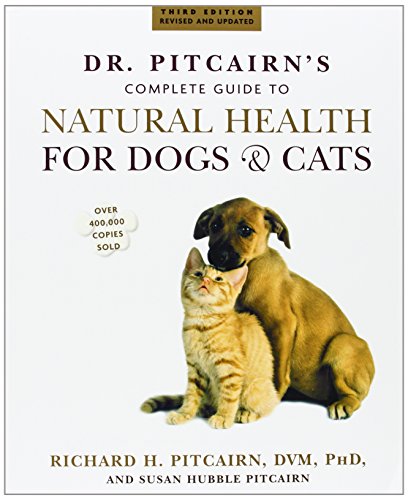
You are probably in the habit of taking your pet to your veterinary clinic for vaccinations every year. You might be surprised the next time you go to the vet, because vaccination protocols are gradually changing. Some veterinarians are starting to recommend that certain vaccines be given once every two or three years, instead of annually. Why is this change occurring?
First we will discuss why vaccines are important. Vaccinations do not guarantee that your pet will never get sick. The reason we vaccinate our animals is to decrease the risk that they will get a serious disease. There are two important ideas in that last sentence- decrease the risk of disease and serious diseases. We vaccinate our pets against diseases that are very common, such as dog parvovirus and cat distemper. We also vaccinate our pets against serious diseases, such as rabies.
Vaccinations work by stimulating the body’s defense system (the immune system). Vaccines contain little pieces of a virus or bacteria. When the immune system is stimulated, the body creates cells specially dedicated to fighting the specific virus or bacteria. This is why a vaccinated animal can react quickly and fight off the disease if the animal is exposed. However, these specialized immune cells do not live forever. This is why we booster vaccinations, to maintain a certain amount of specialized immune cells in the body. The length of time that the protection provided by the vaccine lasts, is determined by two factors. The first determining factor is the vaccine. Some vaccines with live pieces of virus or bacteria stimulate the immune system well and provide long-lasting protection. Other vaccines provide protection for a shorter period of time.The other factor is the individual animal. Some animals will have one vaccine and will be protected for a lifetime, while other animals will only be protected for six months. It is impossible to know exactly how much protection the vaccination will give your pet. This is why, traditionally, vaccines are given annually. If a vaccine is given annually and the vast majority of pets get at least one year of protection from the vaccine, almost all animals will be protected at all times.
Veterinarians want to make sure that all pets are properly protected. And now research is beginning to show that some (not all) vaccines protect our pets for more than just a year. For example, if 99.9% of pets are protected by a certain vaccine for three years, why would we give the vaccine every year? That is the question that veterinarians are starting to ask.
Vaccinating too much is not just a matter of wasting money. There are some health problems that can be associated with over-vaccinating. The first is simply that your pet usually feels a little bit sick after being vaccinated, even though it may not be obvious. It’s just the same as when people feel a little sick after getting the flu vaccine. Also, a few animals have severe reactions to vaccines that can make them very itchy, make their face swell, or in rare cases they have trouble breathing.
Some other potential problems are more serious. One of the biggest worries is that frequent stimulation of the immune system can increase the risk of “immune-mediated diseases”. These are diseases caused when the body’s immune cells attack normal body cells. There is a theory that in rare cases, over-vaccination can over-stimulate immune cells, which go haywire and start attacking everything, including normal body cells. Keep in mind that there are many causes of immune-mediated diseases. Also, cats are at a higher risk of getting a specific type of cancer, called a sarcoma, after vaccination.
The negative effects of vaccinations are rare and they are certainly not a good reason to stop vaccination altogether. But if we can safely decrease the frequency of vaccination, it may benefit the health of our animals. It is important to remember that your animals should still have yearly visits to the veterinarian, even if the vaccinations aren’t yearly. Your veterinarian is skilled at detecting illnesses before something becomes serious or life-threatening. Another good idea, especially for older animals, is yearly blood testing to monitor organ function.
Veterinary medicine is a constantly evolving science. Your veterinarian is continuously working and reviewing current research to provide the best and safest medicine for your pet. Remember that your veterinarian will not reduce the frequency of vaccination until he/she is convinced that your pet will be properly protected. Some vaccines must be given yearly, while emerging research may support the administration of certain vaccines less frequently. If you have questions about vaccination, please talk to your veterinarian.
By Ashley O’Driscoll – Pets.ca writer
 Sarcoptic Mange and Mange in Dogs and other Canine Diseases Humans Can Get
Sarcoptic Mange and Mange in Dogs and other Canine Diseases Humans Can Get
 How to Winter Proof Your Dogs Paws
How to Winter Proof Your Dogs Paws
 3 Tips to Stop your Dog from Pulling on the Leash While Walking and Keep Your Arms in Their Sockets
3 Tips to Stop your Dog from Pulling on the Leash While Walking and Keep Your Arms in Their Sockets
 Is Your Dog Depressed?
Is Your Dog Depressed?
 Our Thoughts On Neutering
Our Thoughts On Neutering
 Dog Treats: Which Dog Treats Are Safe and Which Arent?
Dog Treats: Which Dog Treats Are Safe and Which Arent?
 Basic Obedience Training for Dogs: What You Ought to Know
Credit: Fran Hogan
From: publicdomai
Basic Obedience Training for Dogs: What You Ought to Know
Credit: Fran Hogan
From: publicdomai
 Dog Ramps for the SUV
Pets are a big part of our f
Dog Ramps for the SUV
Pets are a big part of our f
 The Top Ten Cutest Puppy Pictures of All Time
Alright Alright I know. &nbs
The Top Ten Cutest Puppy Pictures of All Time
Alright Alright I know. &nbs
 Pit
Are we the ones frightened or are we the ones
Pit
Are we the ones frightened or are we the ones
 Top Seven Dog Treats - A list of the best, most healthy dog treats available
Top Seven Dog Treats
It抯 easy to go to your local pet super
Top Seven Dog Treats - A list of the best, most healthy dog treats available
Top Seven Dog Treats
It抯 easy to go to your local pet super
Copyright © 2005-2016 Pet Information All Rights Reserved
Contact us: www162date@outlook.com